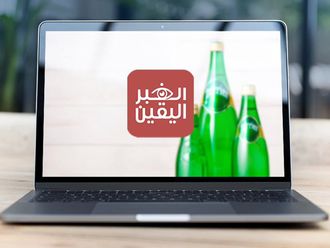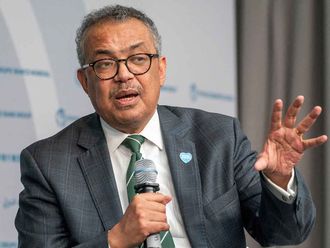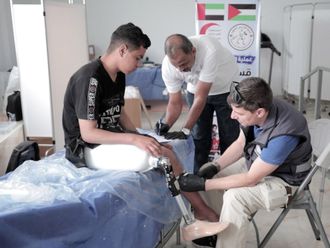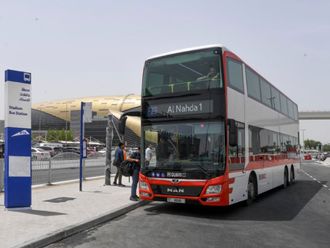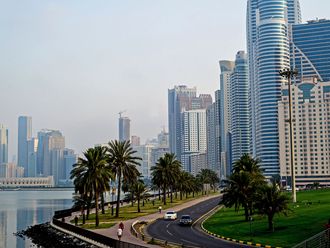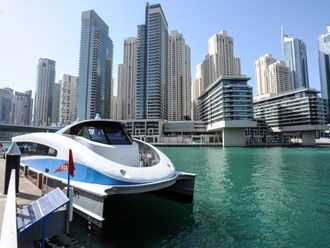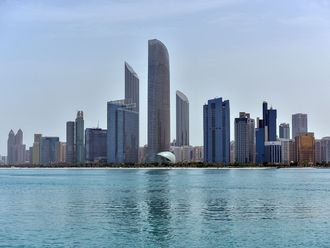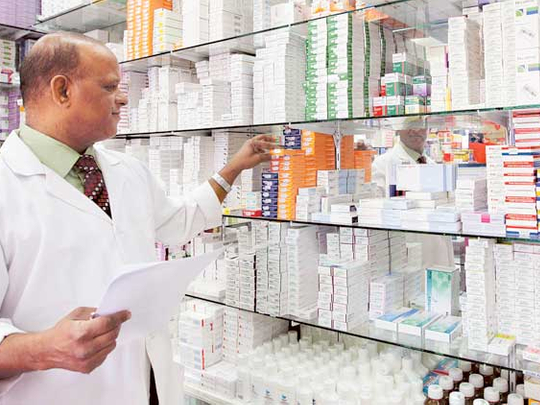
Dubai: The Ministry of Health on Wednesday announced it is reducing prices of 152 drugs for chronic diseases by up to 60 per cent after negotiations with international pharmaceutical companies.
“This will help patients who need to take these medications on a long-term basis,” said Dr Ameen Al Ameri, Assistant Undersecretary at the ministry. Patients suffering from diseases such as hypertension, high cholesterol and heart disease will benefit, he said.
The price drop will range from 10 per cent to 60 per cent, the official said.
The drug companies have agreed to reduce prices of a total of 192 medicines after the talks to unify branded medicine prices across the Gulf Cooperation Council (GCC) states.
Yacoub Haddad, a senior representative from the pharmaceutical companies, said the price reduction will take effect on January 1 next year. The negotiations were held with 23 drug companies.
He said 60 per cent of the products will be made cheaper. Haddad said it would not hurt the companies’ bottom line and pharmaceutical investments here will not be affected. “The environment here, such as good infrastructure and proper legislations, encourages us to work here, “ he said.
A full list of the medicines and their new prices will go online on the ministry website on Sunday, the official said.
The UAE Cabinet had earlier this year approved the reduction of prices of 6,619 medicines. This was to unify drug prices across the GCC states.
A significant section of the UAE population suffers from lifestyle diseases such as diabetes and hypertension. According to the Dubai Health Authority (DHA), more than 3,000 angioplasties (opening up of blocked heart arteries) were performed in Dubai in a single year alone. Many of these people are either hypertensive or diabetic, it noted.
The price reduction will stop people trying to bring cheaper medications from their home countries, said Dr Al Ameri.
A large section of the expatriate population from the sub-continent suffers from cardiovascular diseases and find treatment and medication is expensive here. Many expatriates bring the vital medications from their home countries at greatly reduced prices.
One patient said he is spending Dh400 for medicines for his heart. “Statins [for high cholesterol] are very expensive,” he said.
Dr Al Ameri had said UAE supports the pharmaceutical industry and that it takes just a couple of months for registration of new drugs in the UAE as compared to five months elsewhere.
He said there are 7,500 pharmaceutical products in the UAE. “Other countries force them [drug companies], but we have negotiated with them to reduce the prices,” he said.
The ministry official said there was no move to reduce the prices of generic drugs. “It depends on the pharmacies to set the price,” he said, explaining that patients have a choice to buy a paracetemol, for instance, from a cheaper pharmacy.
A generic drug is basically a branded drug that uses a different name. The American Food and Drug Administration (FDA) regards generic drugs to be “identical” to brand name drugs in dosage form, safety and strength. Generic drugs cost less than branded or ‘innovator’ drugs.
Not many generic drugs for chronic conditions are available in the UAE.


